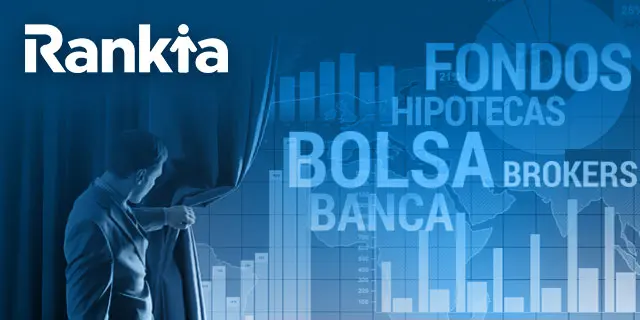Too much to listen and too little time...
My rating: ★★★★☆ (4/5)
Pointers:
- 2:30 – Andrew Lo background.
- 5:10 – What’s more important to markets: supply and demand or fear and greed?
- 6:02 -- Is the Efficient Market Hypothesis (EMH) wrong or incomplete? Definitely not wrong. There are important elements of the EMH that can protect us from making some pretty bad investment mistakes, but it is incomplete in the sense that it doesn’t capture the fear and greed aspect.
- 6:30 -- Rationality and Irrationality coexisting in investing
- 7:23 – With the proper balance between emotion and logical deliberation we end up seeming quite rational, but when that balance go skewed we end up making mistakes.
- 8:03 – Panic is an important evolutionary adaptation. For physical threats is a great response but for financial threats it doesn’t work well.
- 8:35 – “Physicists can explain 99% of all observable physical phenomena using Newton’s three Laws of Motion. Economists probably have 99 Laws that explain 3% of all economic behavior.”
- 9:50 – What about the criticism of Economics as a profession and specifically for missing out the 2008 crisis?
- 14:43 – Are we overly enamored and too reliant on precision and data?
- 15:50 – The Adaptive Market Hypothesis.
- 17:40 – How long have you been playing with this idea?
- 18:34 – The data is not consistent with the Random Walk Theory, there are predictabilities.
- 18:54 – What about Technical Analysis in your approach?
- 20:09 – We are more impulse over the short-term and more logical over the long-term.
- 21:29 – About Hedge Funds. They are the tip of the spear in terms of taking advantage of profitable opportunities as they emerge, but they’re also the canary in the coal mine that can get hit first when financial distress starts to develop.
- 25:24 – Any theories as to why the performance of Hedge Funds has been lagging a 60/40 portfolio in the last decade? There are 4 reasons:
- Low risk-free rate.
- Leverage is way down.
- Low volatility.
- The relationships that they were taking advantage of have changed.
- 27:07 – Overtime the Hedge Funds are going to learn how to adapt but it’ going to take time.
- 28:20 – Hedge Fund industry is dominated by men, but women are growing.
- 29:31 – “Anomalies that have previously generated significant profits stop making money and you were forced to discover other more complex effects that people have not yet found. The Market is never completely efficient but it certainly has a tendency to become more efficient over time.” ― David Shaw
- 30:40 – Are markets now adapting too fast?
- 33:30 – An experiment with students on how consumer marketing surveys could be replace with a simple market simulation. By using the Market you can actually collect the wisdom of crowds much more quickly than with the surveys.
- 39:18 – Hedge Funds strategies in ETFs. For many of those strategies, retail investors should and want to get access to them, but the problem is that certain kinds of Hedge Fund’s strategies have very subtle risks that retail investors are not in a position to be able to evaluate, vg.: Tail Risk.
- 42:16 -- How much alpha exists for the Hedge Fund industry to go after?
- 43:32 – Are we likely to see a substantial change in Hedge Funds’ fees soon?
- 45:00 – At what point does indexing become too big?
- 45:44 – Indexing adds value but it can create more systematic risk.
- 47:07 – Using your experiment on surveys above, what percentage of investors have to be active traders in order for price discovery to work its magic? “If you got very well-funded traders only a few percentage points of markets need to be informed trading… it may work even better if everybody weren’t actively trading…”
- 48:12 – Indexing lowers volatility in the long haul.
- 48:21 – On indexing affecting price discovery. If you take a look at the size of Hedge Funds and their ability to trade and take advantage of market opportunities, despite the fact that they don’t have nearly the size of assets as the passive index funds, they can move markets much more rapidly and in greater depth.
- 49:12 – It takes a theory to beat a theory.
- 52:13 – Why we marry bad ideas and are too slow to change, and how this manifests in markets?
- 53:07 – Andrew Lo’s personal anecdote when presenting a paper refuting The Random Walk Theory.
- 56:55 – Discussing money is a novelty in comparison to the length of time we’ve been on the planet, so we are using our old brains to respond to new ideas as money. We are not yet sufficiently adapted to this new world.
- 1:01:29 – Early mentors.
- 1:02:49 – Which investors or authors have influenced you?
- 1:03:27 – Favorite book.
- 1:05:38 – Since you started, what do you thing the most significant change in the industry has been?
- 1:06:35 – On Regulation and Financial Stability. “Financial Regulation is and adaptive process.”
- 1:08:46 – What do you see as the next mayor shifts? (i)a greeter retailization of hedge fund strategies; (ii)fintech (driverless portfolios).
- 1:10:06 – About Failure. “One has to be careful about the fact that other people have very strong narratives… We have to understand where investors are coming from. We have to understand the lens through which they’re looking at the financial landscape and we have to try to be realistic and develop products and services that take into account those lenses as opposed to trying to force investors into a particular way of thinking that they’re simply not equipped to do.
- 1:11:06 – Sacred cows make the best hamburgers.
- 1:11:25 – What do you do to stay mentally and physically fit?
- 1:12:00 – What advice will you give to those interested in following a finance career?
- 1:13:10 – What would you wish you had known 30 years ago about finance?
Listen to it: https://www.bloomberg.com/news/audio/2017-04-21/interview-with-andrew-lo-masters-in-business-audio

